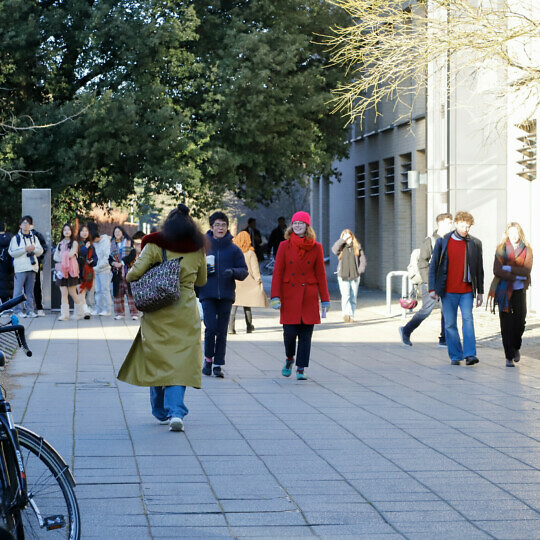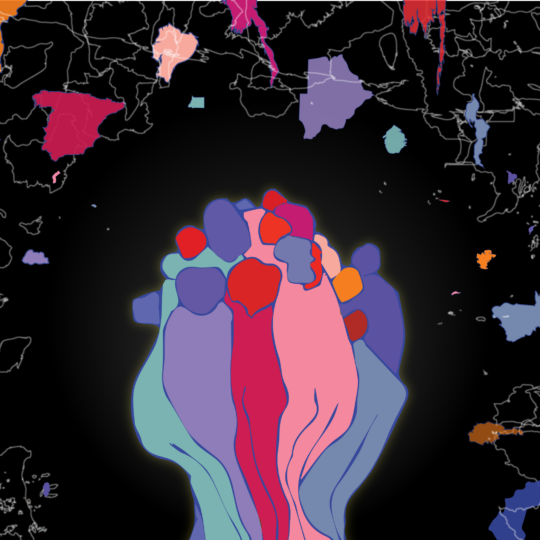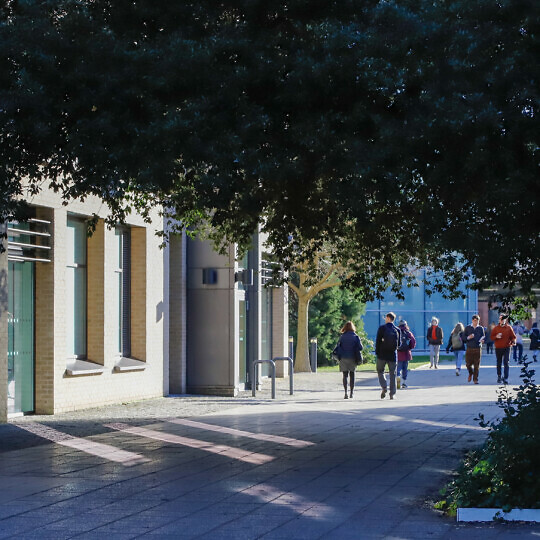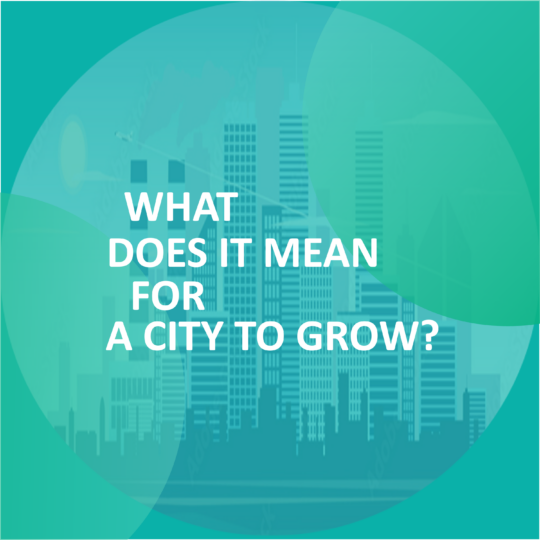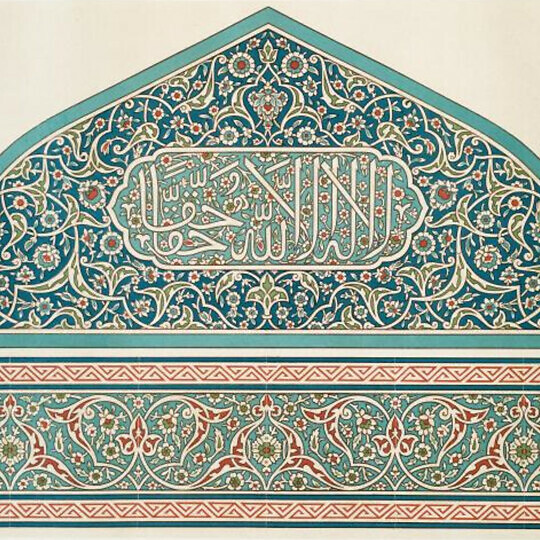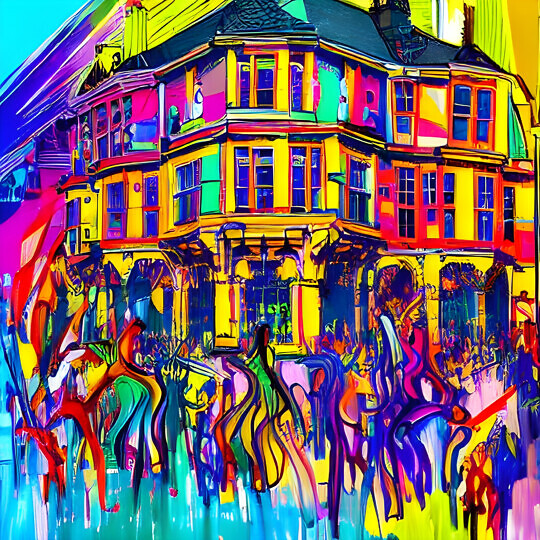| 10 Jul 2014 - 11 Jul 2014 | All day | CRASSH, Alison Richard Building, 7 West Road, CB3 9DT - SG1&2 | |
- Description
- Programme
- Abstracts
Description
Register online via the link at the top right hand side of this page
Conference fee: £50 (full), £25 (students) – includes lunch, tea/coffee
Deadline: Tuesday 8 July 2014
Twitter Hashtag: #CRASSHprotest
Conveners
Sian Lazar (Social Anthropology, University of Cambridge)
Anne Alexander (CRASSH)
Summary
The wave of protest against neoliberalism which swept through Latin America in the early years of the 21st Century, the Arab Revolutions of 2011, the anti-austerity and Occupy movements in Europe and North America are connected by a common thread: the demand for economic justice. This international conference will provide the first opportunity for scholars, journalists and activists from Argentina, the UK, the US, Greece, Spain, Egypt, Tunisia and beyond to compare the challenges faced by the Latin American movements with the experience of mobilizations for similar demands in the Arab world and Europe since 2011. We will focus especially on the interactions between organised workers and the unemployed, youth and students who have played a key role in many of the street mobilizations of the past two years as they build alliances, make demands of the state, and attempt to define political and social alternatives to neo-liberalism and austerity.
Workers' strikes and protests played a critical role in propelling the mass movements in Latin America into state power, destabilised dictatorships in Tunisia and Egypt, and continue to challenge austerity governments across Europe. Yet the role of workers as a collective social actor is significantly underestimated in narratives of the Latin American 'Turn to the Left' and the 'Arab Spring' alike. In an age which commentators have branded an era of social media revolutions, this conference will also provide a space for critical perspectives on the relationship between digital communication and organisational praxis.
Sponsors


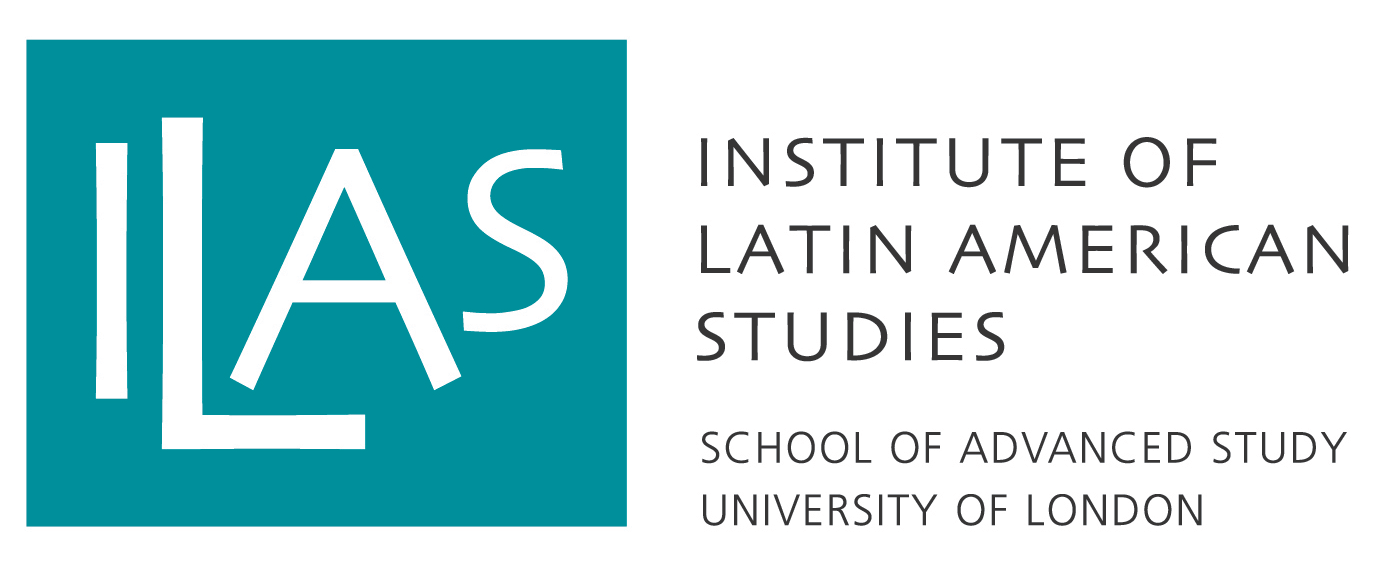
Supported by the Centre for Research in the Arts, Humanities and Social Sciences (CRASSH), the Division of Social Anthropology, and the Institute of Latin American Studies (ILAS).
Accommodation for speakers selected through the call for papers and non-paper giving delegates
We are unable to arrange or book accommodation, however, the following websites may be of help.
Visit Cambridge
Cambridge Rooms
University of Cambridge accommodation webpage
Administrative assistance: events@crassh.cam.ac.uk
Programme
| DAY 1 - Thursday 10 July | |
| 9.30-10.00 | Registration and Welcome |
| 10.00-11.00 | OPENING PLENARY SESSION
|
| 11.00-11.15 | Coffee |
| 11.15-12.45 | PANEL 1
|
| 12.45-13.30 | Lunch |
| 13.30-15.00 | PANEL 2
|
| 15.00-15.30 | Coffee |
| 15.30-17.00 | PANEL 3
|
| 17.00-18.00 | Break |
| 18.00-19.30 | PUBLIC EVENT: Reporting Egypt's Revolution: Journalists On the Front Line
|
| DAY 2 - Friday 11 July | |
| 9.00-10.30 | PANEL 4
|
| 10.30-11.00 | Coffee |
| 11.00-13.00 | PANEL 5
|
| 13.00-14.00 | Lunch and close of the conference |
Abstracts
OPENING PLENARY SESSION
John Chalcraft (LSE): Popular Mobilization and the Political Field: Suggestions from the history of the Middle East and North Africa
PANEL 1
Mohamed-Salah Omri (Oxford): A Tunisian Configuration of Protest? Intersections Between the Labour Movement and the Culture of Protest
The trading of unionism and organized labour in Tunisia is almost one-century old. As such, it spans the colonial as well as the postcolonial period and has been closely linked to both moments in the country’s history. The Tunisian General Union of Labour (better known by its Retrench acronym, UGTT), has been at the heart of the liberation movement and the construction of the nation state since its founding in the late 1940s. The paper is an investigation of the role UGTT played in, and how it has been affected by, protest culture in Tunisia. It studies intersections between protest arts and literatures and UGTT, based on the common practice that UGTT served as incubator, refuge and platform for artist and poets over many decades. These, in turn, have entertained close ties in their themes and practice of protest with the labour movement, whether in strikes, festivals, or popular uprisings. The paper is part of an attempt to understand the character of what I called a “Tunisian configuration of protest”, which could contribute to accounting for the revolution and shed light on the future courses the labour movement itself may take.
Aris Anagnostopoulos (School of European Culture and Languages, Kent) and Aggelos Evangelinidis: Grassroots syndicalism in Greece: circles of struggle, workplace restructuring and the role of traditional trade unions
The recent years have seen a burgeoning of grassroots syndicalism in Greece. Following the events of December 2008, and their seriously overlooked aspect of worker-oriented action and organizing, a great part of the anarchist and extreme left milieu turned to workplace syndicalism as its principal praxis. Drawing from the experience of previous attempts to organize precarious workers, especially in the courier service, these groups and individuals proposed an aggressive, non-institutional syndicalism, based on collective action for the consolidation of individual workplace victories, with the ultimate aim of gaining workers rights for ‘new’ types of workers, marginalized by state-sanctioned trade unions. In the wake of the austerity measures imposed by the Troika, a series of worker’s rights have been irreversibly revoked, leaving little space for the shop-floor negotiation that these collectivities have relied upon until now. At the same time, the importance of fighting over small material victories at the workplace becomes a last bastion of resistance against work restructuring, especially in the private sector. ; This presentation attempts a genealogy of novel forms of syndicalism in Greece, examining them within recent ‘circles of struggle’, as an effect of three not necessarily interrelated processes: the crisis of state-sanctioned trade unions as mediators between workers’ interests and capital, especially as part of the socialist arrangement; the proliferation of low-wage service jobs in the last part of the 90s – as part of the neoliberal regulation of work in late capitalism; and the radicalization of younger generations, especially through the no-global movement of 2003, the student protests of 2006 and its culmination in the events of December 2008.
Heike Schaumberg (Research fellow, Anthropology Department, Manchester): Re-inventing trade union militancy ‘from below’ for a new era? Emerging tendencies and challenges in Argentina
The origins of today’s visibly revived rank and file labour militancy in Argentina have escaped analytical scrutiny. Non-trade union based social movements were the protagonists of the 2001 uprising and its aftermath. The trade union movement was then widely perceived as politically bankrupt and obsolete to working class struggle. Based on nearly two decades of research on and in Argentina, this paper agrees with those Argentine labour historians who contend that the Argentine labour movement had not been as absent from the uprising as is generally suggested. Instead some workers in different workplaces had started an arduous and silent struggle for re-unionisation and rebuilding of rank and file democracy. These developments gained impetus and visibility after the uprising for contingent reasons. Based on my fieldwork since 2003, this paper traces direct and implicit (less visible) dialectical relations between the revival of rank and file militancy, the uprising, and the simultaneously emerging social movements.
PANEL 2
Mary Compton (Past President, National Union of Teachers, UK): Teachers unions and resistance to neoliberalism in Greece and Brazil
Marianne Maekelbergh (Anthropology Department, Leiden): Collaboration between horizontal movements and trade unions: tensions and transformations
This paper draws on over ten years of ethnographic research into the alterglobalization movement and, more recently, responses to the economic crisis across several sites within Europe and the US to explore how the rise of “horizontal prefiguration” within transnational social movement networks has impacted relationships between movements, unions and political parties. Over the past few decades social movements in response to the crisis of representative democracy and growing economic inequality have developed a praxis of social change that strongly emphasizes the creation of an alternative system of governance rather than, or as more important than, transformations in the existing governing systems. This alternative mode of governance is structured through decentralized networks instead of nation-states and is based on practices and principles of horizontality, diversity and constructive conflict. In this paper, examples of decision-making practices (meetings) within the alterglobalization movement, the 15 May movement in Barcelona and the Occupy movements in New York and Oakland are used to highlight on the one hand the political and economic values that are implicit in these alternative governing processes, and on the other hand what the rise of these values might mean for the relationship between movements, unions and parties. This paper shows how the shift towards horizontal network politics within these movements creates new forms of political participation and produces political subjectivities that are irreconcilable with those produced through unions and parties. However, as the stakes rise in the post-2011, economic crisis era, horizontal movements are increasingly working together with unions and political parties. This paper explores some of the tensions and transformations that emerge when horizontal movements either reject or collaborate with unions and parties. ; This paper will focus on the experiences of working-class community leaders who have been key local-level actors in the Bolivarian project. In particular, it will examine how political subjectivities and reputations have evolved among those who, having begun as grassroots neighbourhood organisers, have gone on to become state employees, party brokers and successful local politicians. It will ask how such individuals deal with individual success in terms of new careers, relative financial security and political power as collective struggles for economic justice continue around them. To what extent do these figures maintain links with the grassroots community organisations they founded? How does employment in local government or election to public office change local perceptions of them? Does the pursuit of individual aspirations undermine such leaders’ attempts to mobilise those who have benefitted less from the Bolivarian era? The paper will draw on ethnographic research carried out between 2009 and 2012 in order to answer these questions.
Lucy McMahon (Development Studies, Cambridge): The right to (sell in) the city: street vending and protest in Rio de Janeiro and Recife
During the protest at Rio’s central station on 6 February 2014, street vendor Tasman Amaral Accioly was killed by a bus while fleeing flash bombs and tear gas thrown by police. His death went unreported by the main media outlets. In this paper, this desperately tragic incident is used as a starting point to interrogate the impact of protest in Brazil on the relationship between street vendors and the state. It draws from interviews with vendors in Rio and Recife and engages with the theoretical framework of ‘unruly politics’, in which protests and otherwise ‘unruly’ citizen action are considered as a kind of ‘development practice’.
Street vendors are excluded from traditional union activism as well as from most services provided by the welfare state. Their right to the city is continually contested by private and state actors. In Brazil’s recent protests, street vendors have occupied the streets as participants and organisers as well as vendors. Their experiences of protest can therefore be used to explore the participation of an ostracised group in popular mobilisation, and the specific power dynamics at work on the streets.
The paper first outlines the political and economic rights gained by vendors through protest. It looks both at vendors’ spontaneous participation in mass protest and at the more organised campaigns by vendor unions. It then examines the hierarchies of participation in protest, particularly due to the threat to vendors’ lives and livelihoods and the cooption of protest by resource-rich actors. It argues that despite the transformatory power of recent mobilisations, as narrated by vendors, their experience of protest and its outcomes is shaped by the vulnerable space they occupy as citizens. This must be taken seriously in any evaluation of the role of protest in struggles for economic justice, or of protest as ‘development practice’.
PANEL 3
Walid Daou (Socialist Forum, Lebanon): Potential strategies for the emergence of a democratic, revolutionary workers’ movement in Lebanon
The labour and trade union movement in Lebanon, particularly during the period which followed the Civil War (1975 – 1990) can generally be characterised by its slow adoption of methods of struggle raising economic and sectoral demands, while rejecting political demands even criticism of the ruling regime. Over time, this has led to the weakening of the workers’ movement, and its organisational infrastructure, as well as the fragmentation and retreat of trade union consciousness and class consciousness in the face of the spread of sectarian and clientelist discourses among members of the working class. My presentation will shed light on the practices which led to the shrinking of a space for politics within trade unionism, in particular focussing on sectarianism, racism and gender discrimination. Such practices were either excused by the trade union bureaucracy, or this language was in many cases adopted by the bureaucracy itself towards both male and female Lebanese and foreign workers. In addition to this I will examine the problematic relationship between rank-and-file workers’ struggles and the bureaucratic formations at the top of the union hierarchy. I will discuss the impact of this relationship in limiting the forms and building of trade union and workers’ struggles, its impact on the development of class consciousness, and on the expansion of the workers’ movement and its ability to win new men and women workers. In the light of the revolutionary transformations which have taken place across the region, I will ask what are the possible strategies for rebuilding renewing the momentum of the workers’ movement and the trade union struggle, with the aim of winning not only direct rights for workers but also to begin to moved towards a trade union and labour movement which is democratic and revolutionary, capable of confronting the ruling regime on every level, as well as confronting the ideas which dominate the working class such as sectarianism, racism and sexism. What can Lebanese and foreign workers (who constitute about 30% of the working class in Lebanon) do to unite in a workers movement which is capable of challenging the bourgeois regime currently in power?
Irene Peano (Marie Curie Post-Doctoral Fellow, University of Bologna, Italy): Migrants’ struggles? Logistics workers’ mobilizations and the dilemma of migrant politics in Italy
Since 2009, logistics workers in Italy have mobilised against large distribution chains (such as supermarkets or large companies, most notably IKEA) and freight companies. Protests, strikes, blockades and pickets have been proliferating until now, in various parts of the country, with workers demanding justice against labour-right violations and attempting to dismantle the labour-supply subcontracting system, which sustains such gross exploitation through a distorted use of cooperative forms of labour organisation. They are supported by an inter-sector, conflict-based, grassroots union of self-organised workers, SI COBAS, against the inertia and even the connivance of the major, confederate unions. As their struggle keeps growing, mostly unreported by mainstream media, different radical collectives located across the national territory have come to actively support it, encouraging its intersection with other battles such as that for a basic income or for housing rights, with a view to a 'general insurrection'. Other areas of the movement, instead, are seeking to relate to the struggle in the logistical sector by stressing the interconnections between this form of exploitation and those happening at different points in the production and supply chain, most notably in the agricultural sector. Significantly, the vast majority of logistics workers in Italy are migrants, but whilst their union readily adhered to calls for wider struggles for social justice, they have been rather more ambivalent about supporting those areas of the movement that denounce the inequality engendered by racist immigration laws that severely disadvantage non-EU workers, preferring, or so they claim, to stress unity rather than divisions.
LB: Workers’ Rights, Political Opportunities and the ‘Battle for Discourse’ in Bahrain
Bahrain has an extraordinary relationship with the West. Once a British protectorate it now hosts the US Fifth Fleet and has a Free Trade Agreement (FTA) with the United States. In order to legitimate relationships with its Western partners, for both parties, the authoritarian government in Bahrain has been ‘upgraded.’ With regards to worker’s rights the Bahrain government is a member of the International Labour Organisation (ILO), and has ratified core ILO conventions. Reaffirmation of these conventions was required for the FTA agreement with the US, and the country is a signatory to a whole host of international treaties concerning worker’s rights. In the aftermath of the Bahraini uprising in 2011 thousands of participants in the protests were sacked, arrested and many imprisoned and tortured, including leaders of the labour movement. Bahrain’s need to engage with international standards for worker’s rights and its embeddedness in the neoliberal system has been perceived as a political opportunity for the opposition in Bahrain. The General Federation of Trade Unions in Bahrain (GFTUB) has articulated its grievances to the Bahrain government in terms of these international standards, as well as appealing to international bodies such as the ILO and UN, and foreign governments, in order to bring pressure from above due to the blockages that exist at the local level. The government has responded by attempting to appropriate this discourse, establishing the Bahrain Free Labour Union’s Federation (BFLUF), a government organised non-government organisation (GONGO). This paper seeks to investigate the paradox that this creates, with those having their rights abused appealing to their abusers, whilst both parties utilise the same neoliberal language of rights, engaging in a ‘battle for discourse’ and often providing completely opposing narratives of events within the country to the global community.
PANEL 4
Virginia Manzano (Universidad de Buenos Aires, CONICET-Argentina): ‘Organizing the Unemployed’: Trade Unions, Grassroots Associations and Neoliberal Policies in the Making of the Unemployment Movement in Argentina
In this paper, I focus on the making of the Unemployment Movements in Argentina, one of the most important social actors within the protest and popular mobilizations that opposed neoliberalism in 2001. Thousands of people occupied bridges, roads, squares and public offices in order to demand for food and jobs. To most social researchers, activists and journalists, these protests showed the shaping of a new subject, or new social movement, which emerged in response to the crisis of traditional actors –notably labor unions and political parties-. In contrast, I contend that members of trade unions and leaders of grassroots associations, in their fought for access to urban land in the 1980s, were active in the organization of unemployed people, eventually contributing to their shaping as a political movement. First, I analyze the role of labor-based and urban poor people’s associations in the making of collective demands for food and jobs as well as popular mobilizations. Members of public- sector trade unions (teachers, nurses and doctors), most of them affiliated to Peronism or Maoism, paved the way for the initial grouping of the unemployed once that unemployment and poverty levels began to rise due to structural adjustments in the early 1990s. Second, I explain how the unemployment movement paradoxically became a central actor in its connection with the neoliberal state, which transformed the unemployed into the subject of neoliberal public policies. However, these policies were severely criticized because they didn’t represent sources of “genuine work”. Finally, the trade unions and the grassroots associations articulated the unemployment Movement with patterns of neoliberal power. In a dialectical way, they confronted neoliberal economic and social reforms and, at the same time, they helped expand neoliberal forms of government over the unemployed. In this paradoxical way, the unemployment movement contributed to the political finale of the neoliberal government and created a new context for popular policies of income redistribution in Argentina.
Cristina Flesher Fominaya (National University Ireland, Maynooth): Unions, Youth and Precariousness: the Case of Spain and the Precarious Office
The Oficina Precaria forms part of the wave of collective resistance to austerity in Spain since the emergence of the global crisis. It responds to a perceived “gap” in 15-M which insufficiently organised around labour. In this presentation I discuss the origins, ethos and practice of the Oficina Precaria, situating this within a wider understanding of autonomous youth politics and anti-austerity resistance in Spain.
Matt Wilde (Research Fellow in Anthropology, ILAS, London): Politics as a Vocation: The Ambiguities of Success in Chavista Venezuela
Struggles for economic justice have been central to the so-called “leftwards turn” that has been underway in Latin America for the last decade and a half. Many of the leftist governments who have come to power since the turn of the century owe their political successes to links with social movements who took militant action against structural adjustment and IMF-imposed austerity. During the popular disturbances known as el caracazo in 1989, Venezuela was perhaps the first country to witness widespread resistance to neoliberalism. Since then, the governments of Hugo Chávez and Nicolás Maduro have continually positioned themselves as representatives of that collective resistance, heralding their “Bolivarian Revolution” as an anti-imperialist and anti-capitalist project driven by the people (el pueblo).
PANEL 5
Enrico Tortolano (Trade Union Industrial Officer, PCS – personal capacity): Trade Unionists Against Terror in Guatemala
In recent years, Latin America has witnessed a wave of socialist and social democratic electoral successes. Since the late Hugo Chávez’ 1998 landslide victory in Venezuela, one country after another has turned left. Roughly 400 million of Latin America’s 520 million citizens live under a government that broadly supports what Chávez called “socialism for the 21st century” – the creation of a new, more equitable global economy based on social and economic justice. Guatemala is not one of those countries.
Guatemala is now the most dangerous country in the world for trade unionists. A 36-year armed struggle in Guatemala that ended in 1996 has left a legacy of violence, impunity, corruption and lawlessness that still characterises every level of society. Although Guatemala is a member of the International Labor Organization (ILO), which means it is committed to uphold and respect freedom of association, union activists are regularly sacked illegally, threatened, attacked and even murdered, while the perpetrators of these crimes never face justice. In March 2013 the Guatemalan government signed an agreement with the International Labour Organisation to investigate and prosecute crimes against trade union members.
However, days after the mission left the country three trade unionists were murdered. Carlos Hernández, an executive member of the National Trade Union of Health Workers, was shot dead by two men on a motorbike in his home in the town of Chiquimula. He had previously received death threats while campaigning for better rights for workers and indigenous land owners.
International trade deals are often promulgated and pushed as a way to improve the economic and social environment labour activists operate in. The DR-CAFTA, a trade deal aimed at promoting regional economic “integration,” includes a labour Chapter that theoretically affords abused workers a legal route to attain justice. But if previous agreements are anything to go by, activists are right to be sceptical that external pressure will lead to internal accountability. Trade deals have historically proven more of an impediment to progress than an impetus. In several neoliberal accords brokered by the US, e.g. trade pacts with Mexico and Colombia, trade union activists have rightly described the labour provisions as toothless and, in light of the persistence of rights abuses under “free trade,” far too weak to encourage meaningful reform.
At work, women are discriminated against. They are paid less than their male counterparts and are harassed and sexually assaulted. At home, the violence continues. Indigenous, rural, migrant and domestic workers are also victimised, and the government continues to ignore widespread violations of child labour laws.
It’s no secret that Central America is a dangerous region. According to the ITUC, between 2009 and 2012, at least 38 trade unionists were killed in Guatemala. The time has never been more propitious to end the systematic slaughter of trade unionists in Guatemala.
Mao Mollona (Anthropology Department, Goldsmiths College, University of London): Class mobilization and urban struggles in contemporary Brazil
The paper addresses the waves of urban demonstrations taking place in Rio de Janeiro in 2013-2014 along three main theoretical dimensions. First, it looks at the relation between political activism and economic structures, including class relations, in which struggles are embedded. Second, it looks at the spatial dimension of the struggle, especially in relation to the big sports events, which are taking place in the city, its gentrification and tradition of police violence. Thirdly, it addresses the organizational dynamic of protest, with particular the dialectic of horizontalism and verticalism. The paper is specially concerned with looking at the current debate on contemporary class formations and urban struggles through a combination of labour theory and ethnographic analysis.
Mostafa Bassiouny (Labour journalist, Egypt): The workers movement in Egypt between revolution and counter-revolution
The strike wave which led to the collapse of Hazem Beblawi’s government earlier this year reveals a deeper crisis of organisation in the Egyptian workers’ movement. Around 250,000 workers took part in strike action focussed on a single demand – the implementation of the national minimum wage – against one enemy, Beblawi’s government. Yet such the coordination and solidarity as did exist between different disputes was limited and did not unite them completely. Independent unions at a workplace level did lead a number of these strikes effectively, but there was no-one capable of directing this wave of action as a united movement. An obvious contradiction appeared between the huge size of the workers’ movement and its limited impact, as a consequence of its lack of political organisation or effective trade union organisation beyond individual workplaces. For although Beblawi’s government resigned, subsequent governments have shown even greater commitment to the implementation of neo-liberal policies and an austerity programme. The independent unions have not yet been able to take up a role directing the movement, and competition between their leaders has increased bureaucratisation and fragmentation. In this paper I will examine the prospects for future waves of workers’ collective action under the current regime, in the light of the experience of the last ten years, and argue that unless the organisational crisis is resolved, future waves of workers’ protests are likely face the same problems as that of February 2014.
Pete Waterman: The Old National Labourist Unionism and the New Global Social Unionism: From Invisibility to Emergence?
A reflection on the relevance today of two personal projects from the not-so-distant past: ‘Social Movement Unionism/The New Social Unionism’ and a ‘Global Labour Charter’. The reflections are coloured by 1) both the new wave of labour protest globally and of academic work on such, 2) their general containment within a ‘Globalized and Informatized Cage of Capitalism and Bureaucracy’ and 3) the conference presentations. The provisional conclusion is that a new global social unionism has yet to emerge, either in place or in (cyber)space. And that the Chernyshevsky Question (Shto delyat’/What is to be Done?) remains to be responded to – also by participants in this conference?


